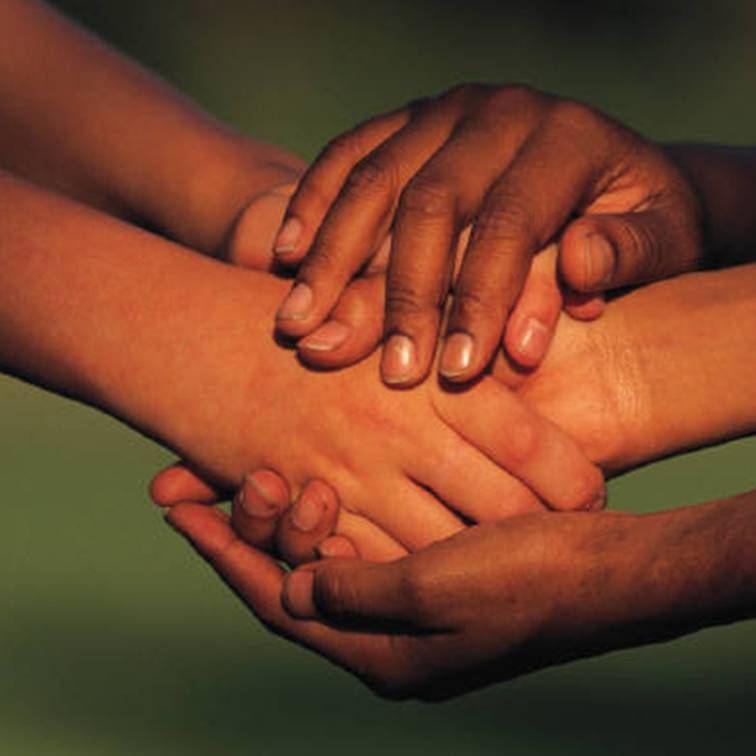Birds of a feather flock together. As far as I know, that is true. So maybe our natural tendencies to gather with people who are like us means we are actually birds disguised as humans. Maybe if we flap our arms, we will fly. And perhaps we should start laying eggs instead of scrambling them.
We all know birds flock in kind, but we are not birds. We are people.
While we are most comfortable with other people who look like us, live like us, speak our language, and share our values, followers of Jesus have been called to something more powerful than the homogeneous unit principle.
When Cain was living east of Eden, sin took root in his heart, and his animosity grew toward Abel, a man of his own kind. He plotted and eventually killed his brother. Sin not only separates us from God, but it separates us from other people who are created in God’s image. It is the source of pride and prejudice among us. It is the seed of violence. And it is the father of lies that tell us that no lives really matter at all. Divisions among us and violence between us are the result of our sin not of our differences.
But God, in His great love for us, sent His Son Jesus who died for people from every tongue and tribe, and in a very practical way removed the dividing wall of hostility that was between us. And He became our peace (Ephesians 2:13-14).
So hate, violence, and murder in every instance reveal our desperate need for God’s grace and for the Gospel of the Lord Jesus. The culture of death terrorizing our cities reminds us of our falleness and of the profound consequence of sin.
Yet most of us are not violent. We have no desire to hurt anyone of any ethnicity. We sing, “Red, and yellow, black, and white, they are precious in His sight. Jesus loves the little children of the world,” and we mean it. In all honesty, we mean no harm, but in all ignorance, we often do little good. Somewhere along the way we believed that people from different ethnicities should not mix, so we viewed color as a reason to keep our distance. And that distance, as it always does, produced suspicion, which soon soured into bigotry.
We may buy our groceries at the same store, but we never share a meal together. We cheer for the same teams, but our kids don’t play together. We smile at one another as we pass by, but we rarely laugh together.
The distance between us keeps us in the dark. We see people from other backgrounds as a group or even a race rather than as individuals. And in our ignorance we assume things that are not true and completely miss the things that are. We do not care, not because we do not have the capacity, but because we have never taken the opportunity.
A friend of mine once told me that Christian friendship progresses when we get to know each other, learn to like each other, and then grow to love each other deeply. We do not love one another because we do not like one another. We do not like one another because we do not know one another.
But we have been called to something more than surface acquaintances.
The apostle Paul wrote,
Therefore I, the prisoner for the Lord, urge you to walk worthy of the calling you have received, 2 with all humility and gentleness, with patience, accepting one another in love, 3 diligently keeping the unity of the Spirit with the peace that binds us. 4 There is one body and one Spirit —just as you were called to one hope at your calling— 5 one Lord, one faith, one baptism, 6 one God and Father of all, who is above all and through all and in all. Ephesians 4:1-6
I must believe there were a lot of things on Paul’s mind as he waited in that prison cell, but the Holy Spirit inspired him to challenge us, based on our singular hope in Jesus, to “walk worthy of our calling by accepting one another in love.” The unity that Jesus prayed for in John 17, Paul commanded here in Ephesians 4.
If we are ever tempted to think that loving one another and creating a culture of unity are secondary issues for the Christian, we must think again. Jesus spilled His blood so that people from every walk of life, every corner of the globe, and every part of the city could be reconciled to Him. And He prayed that by the unity of the redeemed those very people would know the Father sent the Son to rescue and reconcile sinners to Himself (John 17).
Perhaps our greatest testimony to the power of the Gospel to change hearts and heal brokenness in our communities is in how Jesus followers love one another. But we cannot love until we like, and we cannot like until we get to know.
So let me challenge you to make an effort with someone near you who is not like you. To borrow Bill Hybels’ book title, just walk across the room. Start a conversation, ask questions, trade phone numbers, or share a meal together. When we walk in the Spirit, we will not make room for divisions or for discrimination of any kind. Instead, we will make room to love our neighbors. We will build new friendships that reflect the one hope of the Gospel available to every member of one race, the human race.

